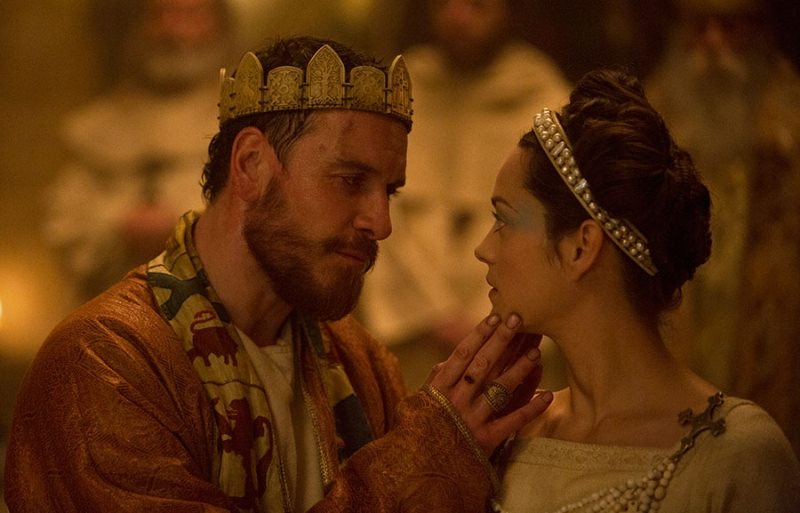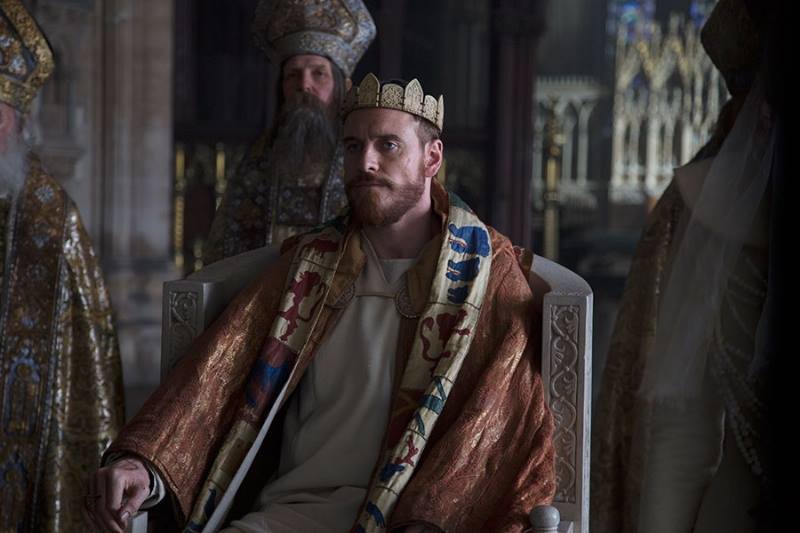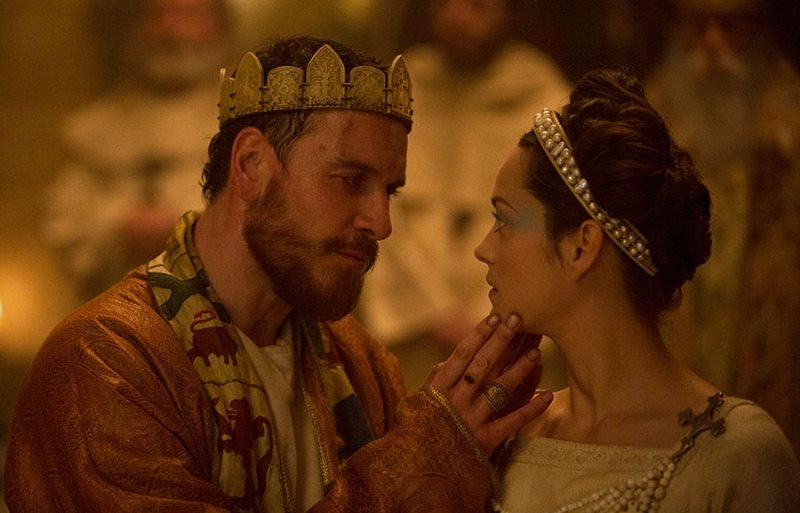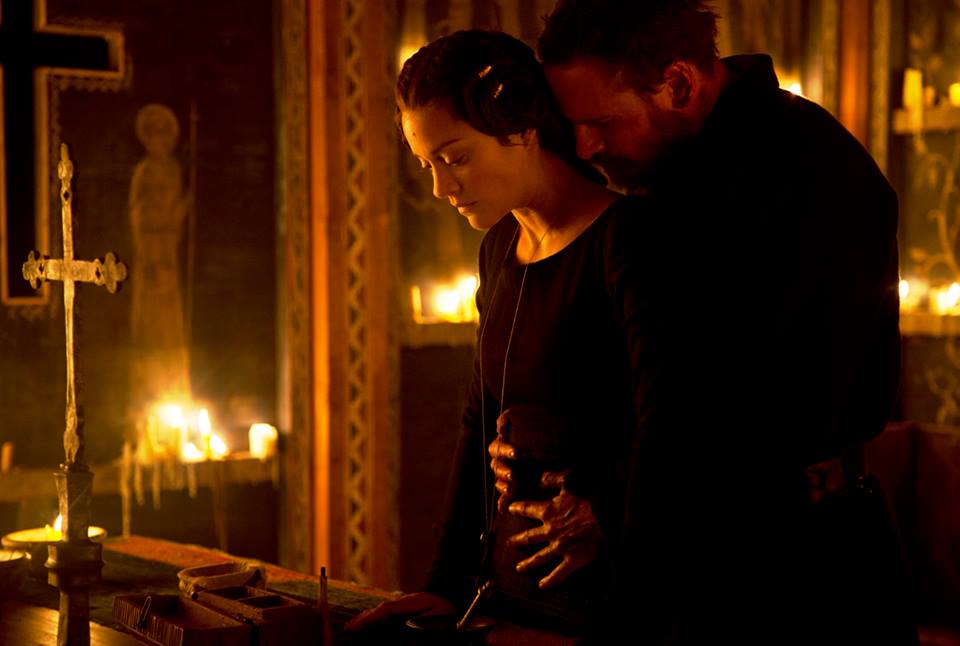Film review: New Macbeth is ‘nothing like we’re used to’

When it comes to Shakespearean classics, done to death by directors and producers the world over, there seems to be more scope to be wrong than to be right. Reimagining such an iconic tale as Macbeth must be a daunting task for even the most seasoned writers. The challenge of reanimating an ancient corpse without corrupting it is immense, and often leads directors to make desperate, superfluous changes in a futile grasp at relevance.
Fortunately for director Justin Kurzel, he seems to have a keen sense for the hidden nuances that generations before him missed. Despite pre-empting every line of dialogue, thanks to agonising months spent poring over the original text in secondary school, this reviewer found himself continually surprised by the bold, subtle changes in direction that lifted this remake into the realm of mastery.
The opening scene immediately sets the tone for the entire film. We are introduced to the world of Macbeth with a soaring panorama of the misty, desolate Scottish moors. A forlorn group of figures huddle against the chill fog around the lifeless body of a child – the prematurely dead offspring of Macbeth and Lady Macbeth. The landscape is a barren wasteland, the Scottish heath resembling a sort of freezing, stony desert. The protagonists’ clothing is primitive and plain.
It becomes immediately apparent that this retelling of Macbeth will be nothing like we’re used to – the action will not take place within the walls of a castle, where the murder and pillage wrought by Macbeth is only spoken of and reported on; where emotional backstories like the death of the Macbeths’ child are only hinted at; where regal and medieval aesthetics are appealed to in order to create a false sense of historicity.
This version takes place in the real Scotland that Shakespeare could never have encompassed in stage direction. The settings are damp, drizzling moors, ancient, untouched forests, bloody battlefields and grey seasides. The clothing is simplistic and representative of the time. While Duncan’s castle does form part of the background, the majority of the action takes place in wild, visceral natural landscape and in fragile, cloth tents pitched in futility against the northern cold.
This background lends the whole narrative a tangible sense of legitimacy. The actors spew the original Shakespearean dialogue through thick Scottish accents. This whole production is built around historical, geographical and cultural truth. Cultural homogenisation and erasure is no longer cool – nobody wants to hear a story like this told in an American accent.
To add to this already favourable impression, the content and dialogue follow a similar ideology of rough, brutal honesty. While the death of the Macbeth child is only hinted at in the original text when Lady Macbeth talks about having “given suck”, we see the lifeless girl thrust before our very eyes. In another original addition, the child appears in an apparition to Lady Macbeth later on, cementing the link between her madness and her grief for her lost daughter. At one point, Macbeth holds a blade to his wife’s womb, pointing cruelly to the elephant in the room. Kurzel leaves the original Shakespearean dialogue untouched, but still manages to explore never-before-seen avenues of the story using simple visual cues. The appearance of the dead child risks crudeness, but avoids it.
We witness similar strokes of directorial genius again and again throughout the action. Instead of killing the MacDuff family at sword point, Kurzel burns them at the stake, evoking the violation of nature by fire and flame. The sex scene between Macbeth and Lady Macbeth brings new, shocking dimensions to her murderous coldness as she talks right through his climax.
When the three fates come to meet Lady Macbeth and escort her to death, existential shivers run up the spine. Stifled gasps betray the audience’s shock as Macbeth bodily lifts Lady Macbeth’s corpse across the room in a grotesque dance. Without straying from the original text, Kurzel manages to insert emotive twists that will surprise and stimulate even the most knowledgeable Shakespeare buff.
The sparse natural landscapes are sufficiently blank that the actors become the sole focus of our attention. We are plunged into the midst of the bloody battle scenes, feeling as though we are fighting alongside the soldiers. The intense close-ups force us involuntarily into an active, first-person dialogue with the characters. We feel part of the action, and this claustrophobic tightness means the actors have nowhere to hide. Luckily, the unrivalled talents of Marion Cotillard and Michael Fassbender mean that we don’t miss the distance… we only wish we could be even closer, to catch every subtle change in expression.
This reinterpretation of Macbeth is a stellar, unflinching portrayal of madness, death, greed and grief. Kurzel, against all odds, has shone light on new facets of a story that has been retold more times than can be counted. The visceral freshness he brings to the tale is a credit to his talent and vision, and the exquisite casting of Fassbender and Cotillard propels the film to stratospheric heights.



